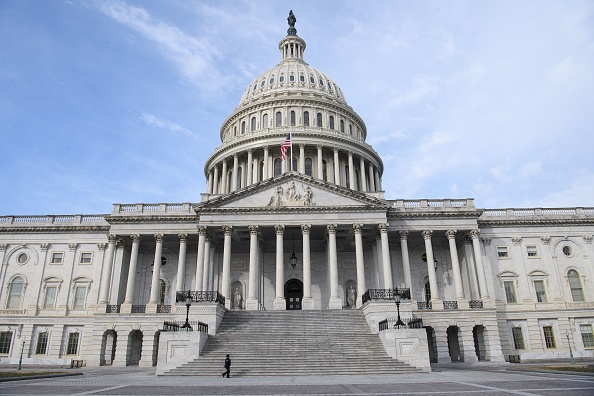Federal and state officials are focused on comprehensive and equitable COVID-19 vaccine distribution, while also looking ahead at what other health care issues may or may not be on the table as the pandemic subsides, health policy experts told the America’s Health Insurance Plans National Policy Conference.
The $1.9 trillion relief bill that passed Congress on a party-line vote was done using the reconciliation process, which requires just a majority for approval, but other health care legislation would require bipartisan support.
“If in the future President Biden and their team want to do significant policy changes, we’re going to have to go back to the old school, regular order, regular legislation, things that require 60 votes,” said Anne Phelps, the health care regulatory leader at Deloitte & Touche.
Avalere Health founder Dan Mendelson said the bipartisan environment within Congress is not showing signs of improvement, but if the Biden administration can make sure issues such as vaccine deployment, mask wearing and public health measures around COVID-19 are not partisan, it will make it easier to work in a bipartisan fashion going forward.
“I do believe the administration will look for places where bipartisanship can be had,” Mendelson said.
Coverage and costs
Mendelson and Phelps agreed that Medicare expansion and a public option for health care insurance likely will not be considered in the next year or two, due to political, time and budget concerns, but reducing the cost of prescription drugs will again become a priority.
Mendelson said the cost of prescription drugs was the top consumer issue going into the 2018 elections but disappeared in the 2020 presidential campaign because of the focus on the pandemic.
“With the fading of the pandemic, at the end of this year and into next year, drug pricing is going to come back with a vengeance for the 2022 election,” he said.
Phelps sees it as an area of potential bipartisan agreement but said the discussion likely will not be around giving the government the authority to negotiate drug prices in federal programs.
“I think Congress is looking for various ways to get at drug prices or drug pricing, and that could be through looking at a certain class of drugs, a set of particular drugs or devices that they want to make sure are available,” Phelps said.
Phelps said the discussion could be more nuanced, with the cost of drugs showing up with the issue of provider transparency and disclosures of costs and rebates. There could be both regulatory and congressional interest in looking at what other countries are doing around drug pricing or at different ways of doing referenced-based pricing, she said, as well as a focus on high-cost drugs, such as insulin and vaccines.
State-level concerns
At the state level, there is still a race to get COVID-19 vaccines into as many people as quickly as possible, said Hemi Twearson, visiting senior policy fellow at the Duke Margolis Center for Health Policy at Duke University.
“You can see across the states there are different percentages with respect to the rate of administering the vaccines, and there are some states that, out of the gate, were able to be more effective and efficient in their distribution and other states that have made incredible progress from where we were in December,” Twearson said.
States still will need to partner with other organizations to get the vaccination job done, Twearson said, as there will be increasing pressure to get shots into arms quickly and equitably as supplies of vaccines increase in coming weeks.
Trish Riley, executive director at the National Academy for State Health Policy, said a number of health care policy issues are gaining traction in the states, despite the pandemic, along with discussions of what regulations need to stay or should be eliminated.
Some of the focus is on the future of telehealth, the makeup of the public health infrastructure, hospital capacity after the ramp-up during the pandemic, costs of deferred care, and implementation of the relief package, especially around whether states will expand their Medicaid programs or possibly roll them back based on post-pandemic trends.
Equity and inclusion, as well as social determinants of health, are front and center for states in ways they had not been before the pandemic, Riley said. States are creating commissions and task forces to address equity and some are making Medicaid coverage decisions based on local issues, such as the use of doulas and community health workers.
“And with the social determinants of health, we know how important they are to equity and yet we still have unresolved who pays, particularly in states that are suffering from post-COVID budget crunches,” Riley said.
States also are focusing on health care costs and affordability, including legislation in the area of prescription drugs, costs and pharmacy benefit managers. Some states are seeing certificate of need bills come forward governing capital construction and services, reflecting concerns about hospital consolidation and price increases, Riley said.
Several states are considering the idea of a public option, which was implemented in Washington State. “And I think what we’ve seen here is the notion again of can we make coverage more affordable,” Riley said.
____________________________________
Ellen Beck is a staff writer and editor who specializes in health care and wellness. She has been a journalist for more than 30 years for print, wire service and online publications, and in radio news.
Sign up for AHIP Solutions SmartBrief for more health care policy and insurance news, research and commentary. And for more health care content delivered straight to your inbox, check out all of SmartBrief’s health care newsletters, covering health IT, news for insurers, news for health care providers and more.
